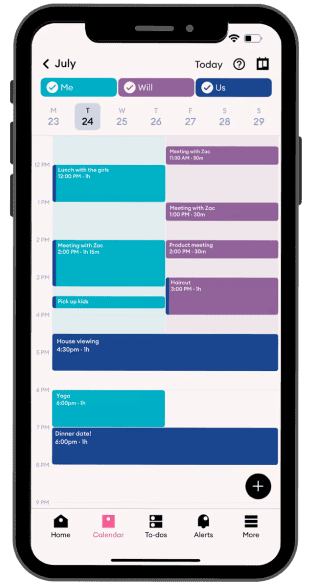Insecurity is a huge relationship problem that can cause them to fall apart. It can cause you and your partner to feel anxious, scared, and, worst of all, jealous. You might be wondering how to stop being insecure in your relationship! Well….your relationship is supposed to be a safe place, and these feelings can make it feel like a war zone. Research proves this – just look at this quote from a University of North Florida thesis:
“Barelds and Barelds-Dijkstra (2007) found that individuals who felt more anxiously jealous reported lower relationship quality. Jealousy leads the non-jealous partner to feel mistrusted and controlled (Barelds & Barelds-Dijkstra). Also, jealousy can create abusive relationships in which one partner attempts to stop any extra-relationship activity using verbal or physical aggression (Hilberman & Munson, 1978)”[1].
When insecurity takes over your life, it’s hard to be happy with yourself and your relationship. But don’t worry! There are lots of ways to make the feelings caused by insecurity disappear. They all come down to building trust with your partner. Here are some easy steps you can take to get that trust back and leave jealousy and insecurity behind.
Step 1: Evaluate Your Feelings
A great first step for fighting your insecurities is to find the root of the problem. You need to understand why you’re feeling insecure in the first place to get rid of those feelings. Are you worried that your partner will leave you for someone else? Do you think you’re not “good enough” for them? Is your partner making you feel this way, or is it all you?
Some of these feelings could be a result of something that happened in your past. Has a partner cheated on you before? Did a previous partner say things that made you feel like you weren’t enough? You may even want to discuss this with a therapist. Once you’ve figured out where your insecurity comes from, it’ll be easier to fight it and work on building trust instead.
Step 2: Talk About It
Now that you know why you’re feeling insecure, it’s time to let your partner in. This might be hard to do if you’re not used to being vulnerable with your partner, but communication is key to a healthy relationship. You and your partner should talk and listen to each other often about what’s on your minds[2].
When talking about your insecurities, focus on how you can work together to get these feelings out of your head. Knowing why these feelings happen isn’t enough – they’re not going away on their own and you need help to get rid of them. Ask your partner to do simple things, like hyping you up before work or sending a text saying how much they love you. These solutions might sound silly, but they can help a lot!
Step 3: Take Action
You’ve evaluated your insecurities yourself and talked through them with your partner. Now you can start to rebuild trust with your actions. This means both of you should do things to show each other you care. You probably talked about some things you can do in your conversation – do them!
It doesn’t have to be a grand gesture either. Couples’ researcher John Gottman says “In any interaction, there is a possibility of connecting with your partner or turning away from your partner…One such moment is not that important, but if you’re always choosing to turn away, then trust erodes in a relationship—very gradually, very slowly”[3].
It’s also important to be honest with yourself and your partner about how your trust has been broken in the past, either in this relationship or others. It might take some time before either of you fully trusts each other, but if both of you are willing to work at it and take steps to address your concerns, trust can and will be rebuilt.
Step 4: Be Vulnerable
You should already know this from Step 2, but being vulnerable is critical to building trust in a relationship. Don’t just be open during that one conversation – try to be honest all the time, and give your partner the space to be honest, too.
You can start by thinking of Dan Yoshimoto’s ATTUNE strategy whenever you talk to your partner and ask them to do the same. The acronym stands for:
- “Awareness of your partner’s emotion;
- Turning toward the emotion;
- Tolerance of two different viewpoints;
- trying to Understand your partner;
- Non-defensive responses to your partner;
- and responding with Empathy”[3].
This strategy allows both you and your partner to feel truly heard, which helps build empathy and understanding. This gives you the space to express your feelings without worrying about your partner judging or criticizing you. Being vulnerable also gives your partner the opportunity to show their support for you, which can help reduce insecurity even more.
Step 5: Dedicate Time To Reconnecting
All of these strategies won’t mean anything if you and your partner don’t make time for each other. How can you communicate effectively if you’re never together? How can you show your partner how much you care if you don’t have time? You need to make the time and space to reconnect to build trust.
This could look like what we usually think of when we hear “quality time”: doing an activity together that you know you’ll both enjoy. Or it could look like cleaning the house or making dinner together. Whatever strikes your fancy and fits well into your schedule!
No matter what your reconnecting time looks like, the best way to make sure it happens is by planning ahead. We all have busy schedules and our calendars can get full fast, so you and your partner should keep each other in the loop. Not sure how to do it? The Cupla app is here to help!
Cupla makes it easy to plan life together with shared calendars, to-do lists, and reminders. Plus they’re offering a free trial on iOS and Android! So get started fighting jealousy and insecurity with quality time using Cupla today!
[1] https://digitalcommons.unf.edu/cgi/viewcontent.cgi?article=1449&context=etd
[2] https://uhs.berkeley.edu/mental-health/resources/learn/improving-relationships-communication-skills[3] https://greatergood.berkeley.edu/article/item/john_gottman_on_trust_and_betrayal
Read the latest pieces from our relationship experts:







